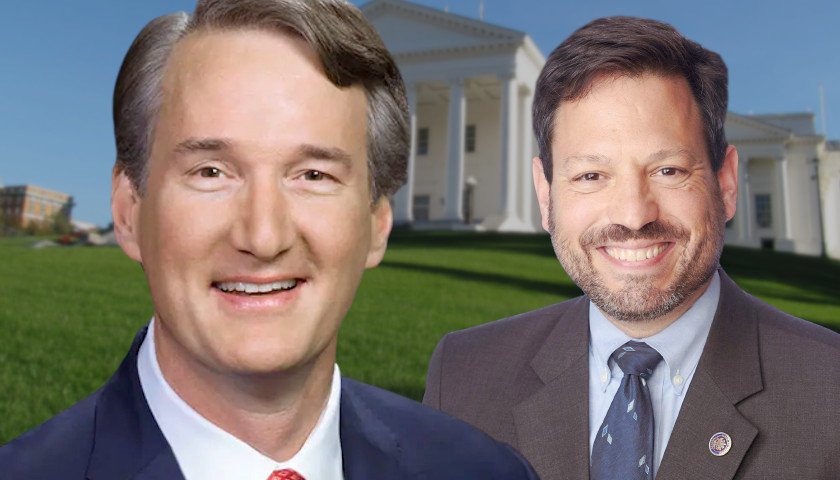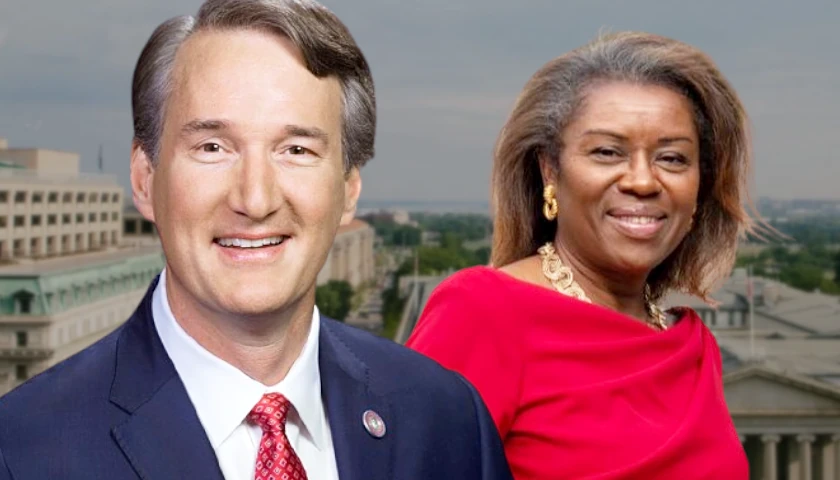As legislators work towards a budget compromise balancing increased spending with revenue losses from tax cuts, Governor Glenn Youngkin and legislators are continuing to argue for their positions.
“The idea that we have to choose between tax relief and our shared priorities is a false choice. It is critical that we do our part to reduce the tax burden on our citizens, particularly at a time when present receipts continue to be as robust as they are,” Youngkin wrote in a Wednesday Richmond Times-Dispatch column.
Virginia and the U.S. are facing high gas prices right now, and on Monday, Youngkin renewed his call for a one-year gas tax suspension after not including it in a March 4 letter to money legislators.
“Facing the highest gas prices on record and the highest inflation rates in decades, families across Virginia are having to do more with their budgets. My plan is simple: The cost of living is going up, so taxes must come down,” Youngkin said in his column.
Youngkin advocated for the House budget which includes doubling the standard deduction, which the Senate budget does not. The House budget also includes larger tax refunds to Virginians than the Senate version, and a full state and local grocery tax elimination, unlike the Senate.
On Wednesday morning, House Majority Leader Terry Kilgore (R-Scott) said on WRVA that although some of those proposals are stalling, “I think at the end of the day, we will, you know, we will prevail. If we don’t prevail with the Senate, you know, Glenn Youngkin’s got a shot at it, he could veto the whole budget. You know, that’s not been done in a while, but could happen.”
“I think everyone needs to know that, you know, he would do that if it came right down to it to get more of his tax cuts, more of his agenda in the budget,” Kilgore said.
House Appropriations Chair Barry Knight (R-Virginia Beach) said Tuesday that Youngkin’s office hasn’t been involved in negotiations over a budget compromise.
“It’s my thing. I know what the governor would like. So he’s my governor, I’ve got that in the back of my mind,” Knight told reporters.
“Once in a while, I’ll kind of tell him the negotiations are going fine or we’re making movement, generically, albeit,” he said.
The Senate budget proposal includes more spending than the House proposal. On Wednesday, several Democratic senators highlighted some of those features.
Senator Creigh Deeds (D-Bath) highlighted the need for increased funding for services for mentally ill Virginians. Senator Jennifer McClellan (D-Richmond) highlighted the higher amount of increased spending on K-12 education in the Senate budget. Senator Barbara Favola (D-Arlington) highlighted spending on helping Medicaid enrollees re-enroll after the public health emergency ends.
Senator Scott Surovell (D-Fairfax) highlighted spending on Virginia’s parks, and referred to Kilgore’s suggestion that Youngkin could veto the bill.
“There’s nothing that gets me excited about sending him [Youngkin] something he doesn’t want like a veto threat. It’s not the best way to have a dialogue. Ultimatums don’t really work too well,” Surovell said.
Senate Republicans responded with their own speeches.
Senate Minority Leader Thomas Norment (R-James City) is one of the conferees in budget negotiations.
He said, “I listened very carefully to some of the comments about the budget, and I asked myself who is the audience? I don’t think that there is any individual here in this body one either side of the aisle that thinks the articulation is going to persuade this governor or other governors in any direction whatsoever.”
Norment told the senators that the tension between the House and the Senate is built into the design of the government.
“We are very keenly aware of what is going on and doing our best, and I compliment my other seven colleagues who are equally committed to try and to bring this budget to conclusion and in a satisfactory way,” Norment said.
Senator David Suetterlein (R-Roanoke) highlighted the disproportionate impact of inflation on low-income taxpayers. Senators Ryan McDougle (R-Hanover), Bryce Reeves (R-Spostsylvania), and Mark Obenshain (R-Rockingham) highlighted the impact of gas prices and inflation.
Obenshain said, “You know, we can talk about the need for, you know, for spending on these programs, but you know, these things are killing families. I mean, they are absolutely imposing incredible hardships.”
Senators Jeremy McPike (D-Prince William) and Majority Leader Richard Saslaw (D-Fairfax) highlighted the collegial atmosphere of the Virginia Senate.
McPike’s wife has been sick, and following a rarely used protocol, Senator Steve Newman (R-Bedford) has been abstaining from close votes, to balance out McPike’s missing vote.
“This Senate chamber is not like Washington. This Senate chamber and members in it work and operate much differently even despite some of today’s dialogue,” McPike said.
– – –
Eric Burk is a reporter at The Virginia Star and The Star News Network. Email tips to [email protected].
Photo “Scott Surovell” by Scott Surovell. Background Photo “Virginia Capitol” by Doug Kerr. CC BY-SA 2.0.





